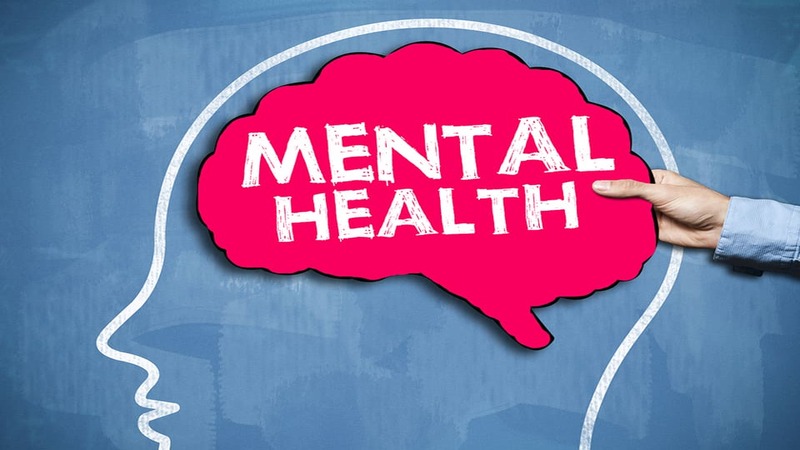The pursuit of happiness is a universal human aspiration, yet our own minds can sometimes become the greatest obstacles to achieving this elusive goal. The intricate workings of our minds, shaped by evolutionary, psychological, and social factors, can lead us down paths of self-sabotage creating huge effect on mental health.

Let’s delve into the ways our minds sabotage our happiness, shedding light on cognitive biases, habitual thought patterns, and emotional responses that hinder our well-being
Cognitive Biases
Our minds are prone to various cognitive biases that distort our perception of reality. One such bias is the negativity bias, where we tend to give more weight to negative experiences and information than positive ones. This bias may lead us to dwell on setbacks, criticisms, or failures, overshadowing positive aspects of our lives. Recognizing and challenging these biases can be pivotal in reshaping our perspective.
Overthinking and Rumination
The human mind has a tendency to overanalyze and ruminate on negative thoughts. Overthinking often involves dwelling on past mistakes or worrying excessively about the future. This constant mental churn can create a cycle of stress and anxiety, eroding our sense of contentment. Mindfulness techniques, such as meditation, can help break the cycle of overthinking by fostering present-moment awareness.
Perfectionism
The pursuit of perfection can be a double-edged sword. While it may drive us to achieve high standards, perfectionism can also lead to chronic dissatisfaction and self-criticism. The fear of failure or making mistakes can hinder risk-taking and stifle creativity. Embracing a mindset of growth and self-compassion can counteract the detrimental effects of perfectionism in mental health.
Comparison and Social Media
In the age of social media, comparing ourselves to others has become more prevalent and harmful. The curated nature of online profiles often showcases the highlights of others’ lives, fostering unrealistic expectations. Constant comparison can fuel feelings of inadequacy, jealousy, and a sense of not measuring up. Limiting social media use and cultivating gratitude for our own unique journey can mitigate these negative effects and boosting mental health.
Attachment to Outcomes
We often tie our happiness to specific outcomes or achievements. While setting goals is essential, an excessive attachment to the end result can lead to disappointment if expectations are not met. Embracing the process, focusing on personal growth, and finding joy in the journey can shift our mindset from outcome-driven to present-focused.
Fear of Uncertainty causes harm to mental health
The unknown can evoke anxiety, and our minds often resist uncertainty. The fear of the future, coupled with a desire for control, can generate stress and hinder our ability to adapt to change. Developing resilience and acceptance of uncertainty can foster a more balanced and serene state of mind.
Grudges and Holding onto the Past
Harboring resentment and holding onto past grievances can be detrimental to our well-being. The mind’s inclination to replay negative experiences can perpetuate feelings of anger, sadness, or betrayal. Forgiveness, both of others and ourselves, is a powerful tool for releasing the emotional baggage that can weigh us down.

Self-Limiting Beliefs
Our minds are susceptible to adopting self-limiting beliefs that undermine our potential. Negative self-talk, imposter syndrome, and feelings of unworthiness can become self-fulfilling prophecies, hindering personal growth and happiness. Cultivating self-awareness and challenging these limiting beliefs can pave the way for positive change in our mental health.
Hedonic Adaptation
The phenomenon of hedonic adaptation refers to the tendency of humans to quickly return to a relatively stable level of happiness despite major positive or negative events. While adaptation allows us to cope with adversity, it can also lead to a perpetual cycle of seeking external sources of happiness without lasting satisfaction. Practicing gratitude and savoring positive moments can counteract hedonic adaptation.
Lack of Presence and Mindfulness
In our fast-paced lives, being fully present in the moment can be a challenge. The mind’s tendency to wander, coupled with multitasking, dilutes our experience of joy in the present. Incorporating mindfulness practices, such as meditation and deep breathing exercises, can anchor us in the present and enhance our capacity for happiness creating positive impact on mental health.
In conclusion, our minds, shaped by evolutionary and societal factors, possess intricate mechanisms that can either enhance or hinder our happiness. Recognizing and understanding these patterns is the first step toward breaking free from the self-sabotaging tendencies that may impede our well-being. By fostering self-awareness, embracing positive habits, and cultivating a mindset of gratitude and resilience, we can empower ourselves to navigate the complexities of the mind and embark on a journey toward lasting happiness.
(Disclaimer: The information given here is based on general information. Before adopting it, definitely take medical advice. THE MONK does not confirm this.)






































